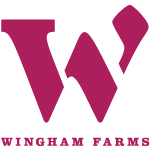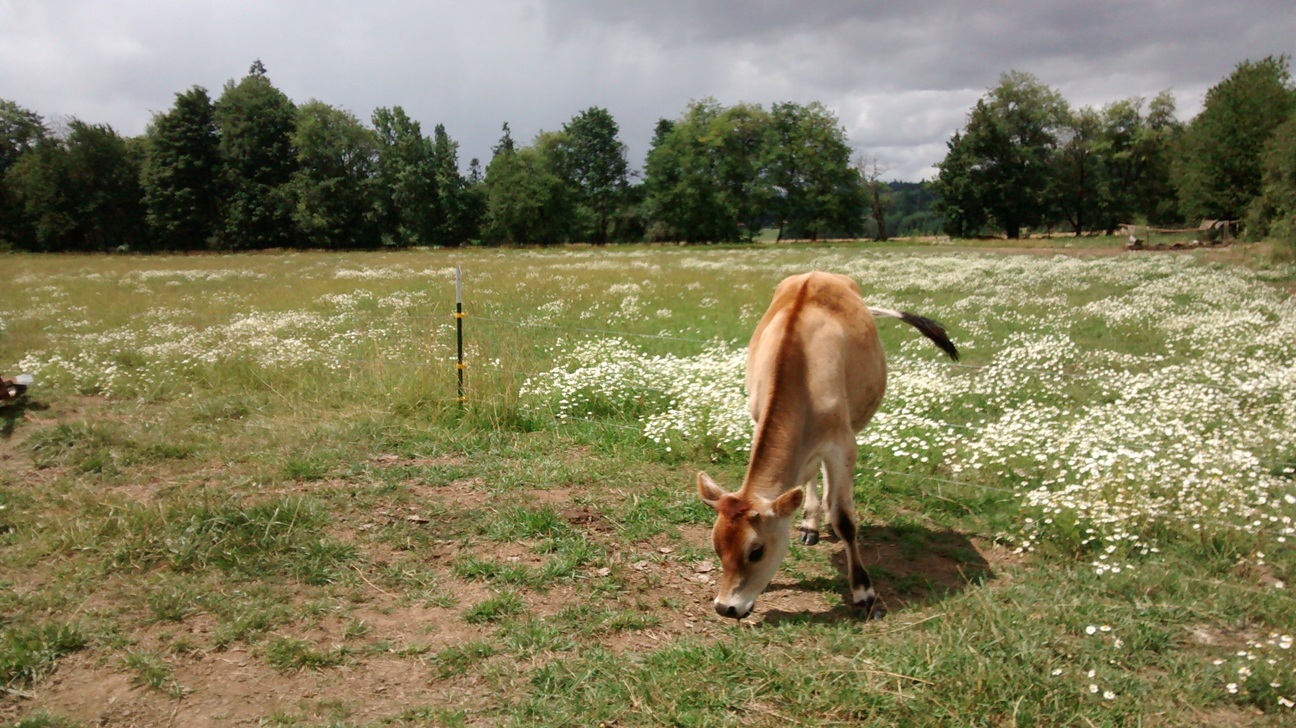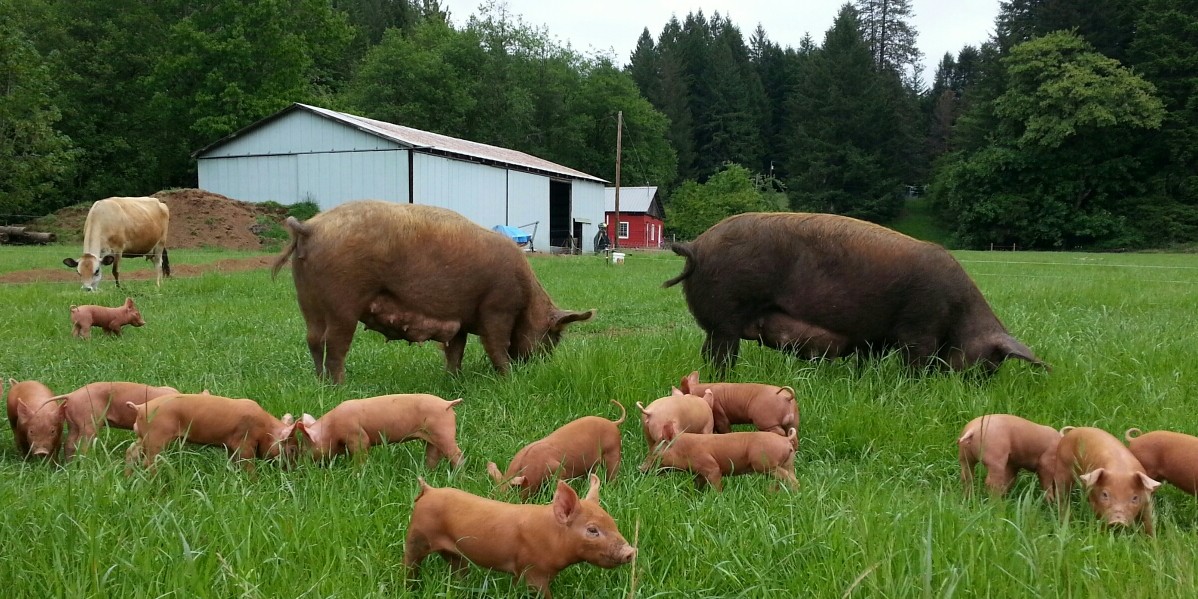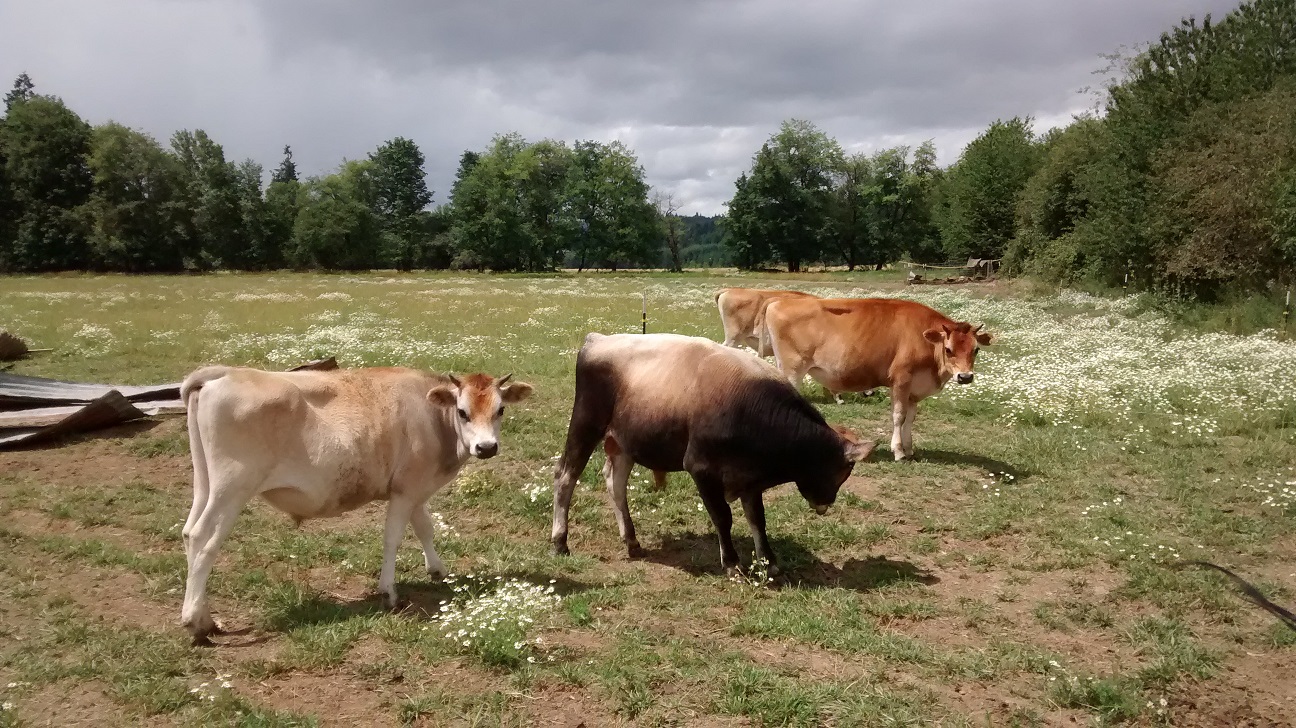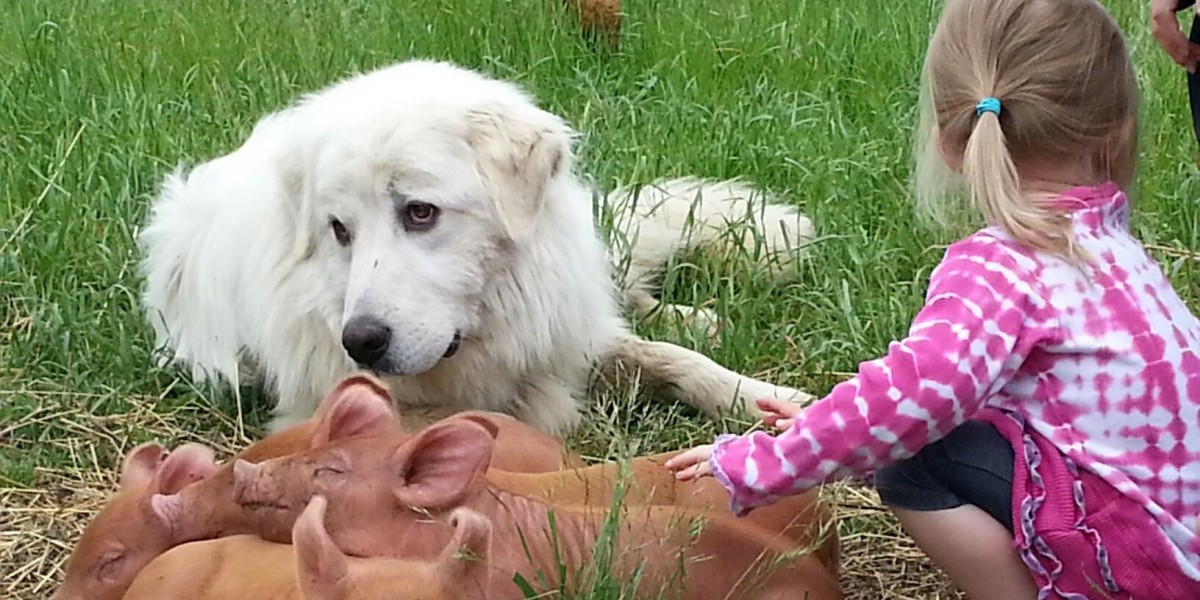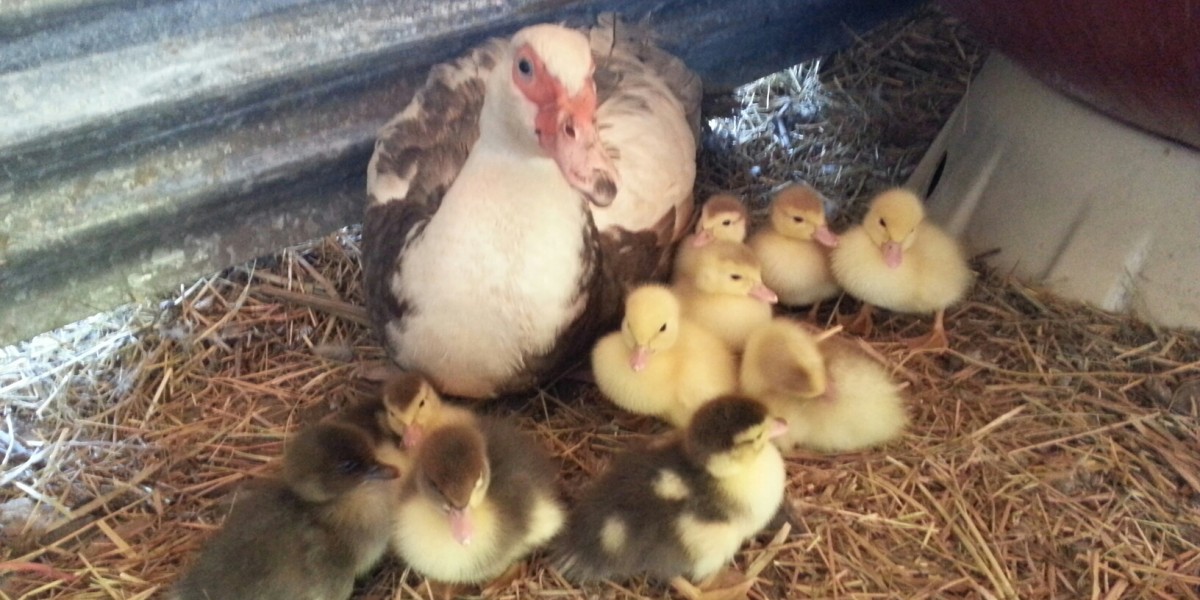We also raise several kinds of pastured meat animals – beef steers, pigs, goats, sheep (lamb) – for sale by the piece, in shares, or as whole animals (goat roast, anyone!?). The American Grassfed Association is a valuable resource for people interested in the environmental, animal welfare and health benefits of pastured meat like ours.
Meat Shares: Our pork and beef are typically sold in shares ranging from ½ to 1/4th of an animal, and we are currently taking deposits for shares for the upcoming butchering (June or November). We arrange for the butchering of the animal, do the delivery of it to the butcher, and bring the frozen meat back to our customers to pick up at the farm. One benefit of buying a share of an animal is that the price is better. You are also challenged to take and learn to cook and eat all parts of the animal, a more ethical and environmental choice. But we understand that not everyone has the freezer storage space! For more information on buying meat by the share, visit this page.
Meat by the piece: We are licensed by the state of Oregon to sell our own frozen meat by the piece, butchered by a USDA-approved butcher. We have our own meat freezers and can sell directly at the farm, at the farmers’ markets (where we carry the meat kept cool with dry ice), or to restaurants. You can view our meat price list here.
Meat CSA: We have partnered in the past with Stoneboat Farms – an organic vegetable farm that runs an awesome CSA – to offer meat CSA boxes – a bi-weekly meat bag that offers great value for money (because you can buy an 1/8th or 1/4 of an animal but without having to have a freezer to store all the meat). It also helps you learn how to cook all parts of the animal. Currently this program is on hold while we reevaluate how to make it logistically and financially viable, but it may return in future.
Beef: Our beef herd is also Jersey, which is a slow-growing meat animal, but a good choice for us because of our focus on pasture and the health benefits for both animals and humans of grass-feeding and finishing. Jersey meat has long been recognized for being flavorful but has been ignored by big producers because the steers do not gain weight quickly, especially on grass (here’s another favorable taste test for grass fed meat, although not specifically Jersey). Our steers are about two years old when they are sent for butchering, rather than the one year that is common for a commercially raised Angus steer. The steers are raised on milk (mother’s or powdered) for the first 3-4 months of their lives and transition gradually to grass during that time. Our beef steers move around all year on pasture, with a rotational grazing system. In the dry part of summer and the coldest part of winter, we supplement with local hay.
Pork: We raise mostly Tamworth pigs, a threatened heritage breed that is particularly adapted to grazing on pasture and foraging in woodlands. We sometimes raise Large Black pigs (another heritage breed), and some Tamworth/Large Black crosses – the variation comes from us no longer breeding pigs – we buy weanlings from some heritage pig breeders. Our heritage pigs are also a “slow meat”, taking over 18 months to mature, rather than the 9 months that commercial feeding operations achieve. The pigs live in a several acre pasture most of the year (they are indoors in the worst of the cold weather), and their diet is a mix of legumes, grains (or sometimes spent barley) and their favorite: what they can forage on the pasture. They love the summer months, when there is plenty of fruit for them to find falling from the trees and bushes in the “hedgerows” on our field side of the Banks-Vernonia State Trail, which bisects our farm (and from which you can watch the pigs and piglets roaming and foraging).
Goat: Our meat goats are predominantly La Mancha and Nubian (some crossed), although there is some Boer and Saanen mixed in as well. The goats get to forage for themselves outdoors most of the year, and are fed local hay when the pastures aren’t growing. The kids are nursed for several months before they are weaned, and their mothers teach them how to forage. Some of their favorite foods are blackberry leaves and young thistle heads.
Lamb: The breeds vary (because we mostly buy weaned lambs rather than breeding by ourselves), with Icelandic, Texel, Hampshire (and crosses) predominating. The sheep get to graze and forage in the pastures just like the goats; because they have different eating habits, they are actually good complements to each other. We feed them local hay when the grass is not available.



